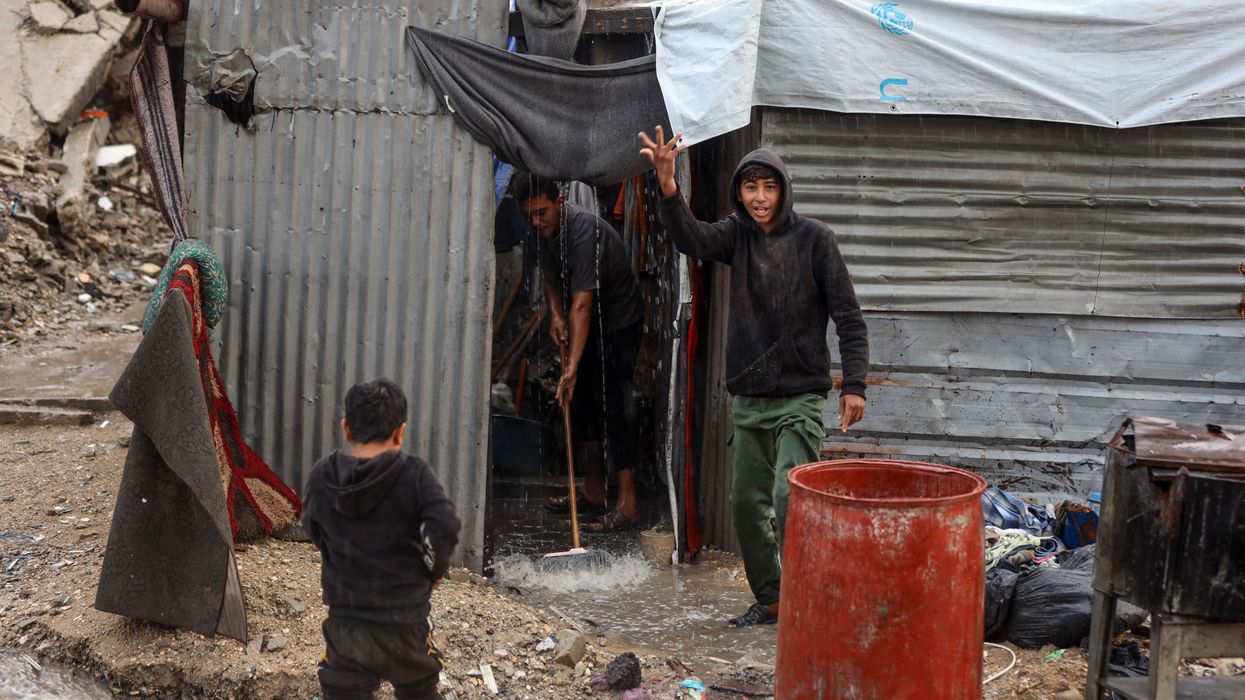August, 01 2018, 12:00am EDT

Businesses Criticize Sen Rubio Paid Leave Bill as Too Limited and Not Funded Responsibly
WASHINGTON
Today, the leading policy advocacy group for responsible businesses released a statement criticizing the Economic Security for Parents Act that will be introduced by Senator Marco Rubio, saying that it would provide limited benefits and reduce Social Security for participants. The following statement may be attributed to Christine Blackburn, Policy Director of the American Sustainable Business Council (ASBC):
"This bill is a long way away from what American employees need and what most businesses want to provide. The benefits are extremely limited, but that's not the worst of it. Reducing Social Security benefits to pay for limited paid leave makes no sense. We support the FAMILY Act, which would provide the comprehensive benefits American employees and businesses need, and it is funded with small contributions by both employees and employers."
In addition to its responsible funding, the FAMILY Act's broader benefits would cover critical family and medical issues that Senator Rubio's bill doesn't. By focusing only on a very narrow part of the working population that needs paid leave, Rubio's bill ignores the vast majority of employees who use paid leave to take care of other family members and deal with serious illnesses. Nearly 75% of employees currently with access to leave, either under law or through their employer, use their leave for instances other than the birth or adoption of a new child. Under the FAMILY Act, all employees could use their benefits to take care of other family members or deal with their own serious illnesses.
Companies in states that already have paid leave policies in place have seen increased worker satisfaction and increasingly productive workplaces. This, in turn, reduces business costs associated with employee turnover and training, which can cost thousands of dollars per worker.
"Senator Rubio's bill presents a cruel choice to American employees," said Blackburn. "They should not be forced to choose between taking leave they need now or full retirement benefits. It is bad public policy to implement a government-mandated policy that drains the Social Security program during a time when many workers are already struggling to put aside enough for retirement."
ASBC submitted testimony to a Senate subcommittee hearing on paid leave held on July 11. It said in part, "The right program will allow employees to meet the needs of a new family or take proper care of a seriously ill loved one (or themselves) without financial penalty. Because these are inherently stressful life situations, practical support, such as paid leave, makes a profound and lasting difference to employees and their loved ones." The full testimony may be found here: https://asbcouncil.org/sites/default/files/asbcpaidleavehearingwrittentestimonyfinal.pdf.
Paid leave is a key component of what ASBC calls the high-road workplace. Companies that follow the high road, value their employees, the communities in which they operate, and the products and services they provide as equally important to their financial success. High-road companies that implement paid leave programs understand that workers' personal lives can impact their work lives. By taking the needs of their workers into consideration, high road companies reap the benefit of happy, productive employees and lower hiring and training costs.
ASBC published a report, "The High Road Workplace: Route to a Sustainable Economy," that describes high-road practices and principles. It may be found here: https://asbcouncil.org/sites/default/files/asbc_building_the_high_road_report_2017.pdf
The American Sustainable Business Council (ASBC) advocates for policy change and informs business owners, policymakers and the public about the need and opportunities for building a vibrant, broadly prosperous, sustainable economy. Founded in 2009, its membership represents over 250,000 businesses in a wide range of industries.
(202) 660-1455LATEST NEWS
After NYT Sues Over Pentagon Policy, Press Advocates 'Urge Other News Outlets to Follow'
"The only way to put an end to the Trump administration's multipronged assault on press freedom is for every news outlet to fight back at every opportunity," said the head of the Freedom of the Press Foundation.
Dec 04, 2025
Press freedom advocates on Thursday welcomed the New York Times' lawsuit over the US Department of Defense's "flatly unconstitutional" press policy, filed on the heels of the first briefing for what critics call the "Pentagon Propaganda Corps."
The newspaper and Times reporter Julian E. Barnes, one of several journalists who refused to sign the policy earlier this year, are suing the DOD—which President Donald Trump has dubbed the Department of War—as well as Defense Secretary Pete Hegseth and the Pentagon's chief spokesperson, Sean Parnell, in the US District Court in Washington, D.C.
The plaintiffs are asking Judge Paul L. Friedman, an appointee of former President Bill Clinton, to strike down provisions of the Pentagon policy that violate their First and Fifth Amendment rights, and warn that "if allowed to stand, that policy will upend the longstanding and 'healthy adversarial tension between the government, which may seek to keep its secrets' and 'the press, which may endeavor to' report them... and will deprive the public of vital information about the United States military and its leadership."
The filing notably comes not only as the DOD celebrates that dozens of "independent journalists, bloggers, and social media influencers" who "are not associated with legacy media outlets, including print media such as newspapers and magazines, and broadcast media, such as cable television news," have joined the new Pentagon Press Corps in exchange for signing the controversial agreement, but also as Trump and Hegseth face mounting outrage over boat bombings that experts argue are "war crimes, murder, or both."
Charlie Stadtlander, a spokesperson for the newspaper, said in a statement that "the Times stands with fellow news organizations across digital, print, and broadcast media, including many conservative outlets, in strongly opposing this unprecedented policy."
The paper has hired a prominent First Amendment lawyer, Theodore J. Boutrous Jr. of Gibson Dunn. The Washington Post reported that "lawyers representing the Times said they discussed litigation with other news organizations but ultimately decided to proceed on their own. They said they would welcome other outlets filing their own lawsuits or amicus briefs in the Times' case."
While Parnell said in a statement that "we are aware of the New York Times lawsuit and look forward to addressing these arguments in court," journalists and media advocacy groups are already signaling support for the newspaper—which is also battling a $15 billion defamation suit refiled by the president in October.
Reporters Committee for Freedom of the Press vice president of policy Gabe Rottman said Thursday that "the Pentagon's press access policy is unlawful because it gives government officials unchecked power over who gets a credential and who doesn't, something the First Amendment prohibits."
"The public needs independent journalism and the reporters who deliver it back in the Pentagon at a time of heightened scrutiny of the department's actions," he asserted. "We look forward to lending our voice in support of this suit."
The Pentagon Press Association said it was "encouraged by the New York Times' effort to step up and defend press freedom," while White House Correspondents' Association president Weijia Jiang declared that the WHCA "stands firmly" with the newspaper and described the suit as "a necessary and vital step to ensure journalists can do their jobs."
Clayton Weimers, executive director for Reporters Without Borders USA, said that "it's great to see the New York Times continue to proactively defend press freedom in the courts as well as on their pages. We all know by now that capitulation to Donald Trump's authoritarian impulses never works out, but fighting back will."
"This is the logical next step after the mass refusal of journalists to sign Secretary of Defense Hegseth's loyalty pledge," Weimers added. "Journalists must be able to cover the government critically and freely."
Pointing to television companies' recent settlements with the president, Freedom of the Press Foundation executive director Trevor Timm said that "in an era where news networks seem to be caving to Trump's censorious tactics left and right, it's refreshing to see the New York Times leading by example and sticking up for the First Amendment in court."
"An attack on any journalist’s rights is an attack on all. And the only way to put an end to the Trump administration's multipronged assault on press freedom is for every news outlet to fight back at every opportunity," Timm continued. "We urge other news outlets to follow the Times' lead."
"These days, the government has countless platforms of its own to tell the public what it wants it to know. A free and independent press isn't needed for that," he noted. "The Constitution guarantees one anyway precisely because the public needs the information the government does not want it to know. The Pentagon's absurd access pledge has been an affront to the First Amendment since the first day they proposed it. And we look forward to a federal judge throwing it out with the trash, where it belongs."
Keep ReadingShow Less
UN Experts Say Those Ordering and Carrying Out US Boat Strikes Should Be 'Prosecuted for Homicide'
“US military attacks on alleged drug traffickers at sea," said two human rights experts, "are grave violations of the right to life and the international law of the sea."
Dec 04, 2025
Two United Nations rights experts warned that in numerous ways in recent weeks, the Trump administration's escalation toward Venezuela has violated international law—most recently when President Donald Trump said he had ordered the South American country's airspace closed following a military buildup in the Caribbean Sea.
But the two officials, independent expert on democratic and international order George Katrougalos and Ben Saul, the UN special rapporteur on protecting human rights while countering terrorism, reserved their strongest condemnation and warning to the US for the administration's repeated bombings of boats in the Caribbean and the Pacific, which have targeted at least 22 boats and killed 83 people since September as the White House has claimed without evidence it is combating drug traffickers.
The strikes, said Katrougalos and Saul, "are grave violations of the right to life and the international law of the sea. Those involved in ordering and carrying out these extrajudicial killings must be investigated and prosecuted for homicide.”
Human rights advocates have warned for months that the strikes are extrajudicial killings. Trump has claimed the US is in an "armed conflict" with drug cartels in Venezuela—even though the country is not significantly involved in drug trafficking—but Congress has not authorized any military action in the Caribbean.
Typically, the US has approached drug trafficking in the region as a criminal issue, with the Coast Guard and other agencies intercepting boats suspected of carrying illegal substances, arresting those on board, and ensuring they receive due process in accordance with the Constitution.
The Trump administration instead has bombed the boats, with the first operation on September 2 recently the subject of particular concern due to reports that Defense Secretary Pete Hegseth issued an order for military officers to "kill everybody" on board a vessel, leading a commander to direct a second "double-tap" strike to kill two survivors of the initial blast.
Hegseth and Trump have sought to shift responsibility for the second strike onto Adm. Frank "Mitch" Bradley, the commander who oversaw the attack under Hegseth's orders. Bradley was scheduled to brief lawmakers Thursday on the incident.
The White House has maintained Bradley had the authority to kill the survivors of the strike and to carry out all the other bombings of boats, even as reporting on the identities of the victims has shown the US has killed civilians including an out-of-work bus driver and a fisherman, and the family of one Colombian man killed in a strike filed a formal complaint accusing Hegseth himself of murder.
The UN experts suggested that everyone involved in ordering the nearly two dozen boat strikes, from Trump and Hegseth to any of the service members who have helped carry out the operations, should be investigated for alleged murder.
After Hegseth defended the September 2 strike earlier this week, Saul emphasized in a social media post that contrary to the defense secretary's rhetoric about how the boat attacks are "protecting" Americans, he is carrying out "state murder of civilians in peacetime, like executing alleged drug traffickers on the streets of New York or DC."
As Common Dreams reported last month, a top military lawyer advised the White House against beginning the boat bombings weeks before the September 2 attack, saying they could expose service members involved in the strikes to legal challenges.
Katrougalos and Saul urged the administration to "refrain from actions that could further aggravate the situation and ensure that any measures taken fully comply with the UN Charter, the Chicago Convention, and relevant rules of customary international law."
They also emphasized that Trump had no authority to declare that Venezuela's airspace was closed last week—an action that many experts feared could portend imminent US strikes in the South American country.
“International law is clear: States have complete and exclusive sovereignty over the airspace above their territory. Any measures that seek to regulate, restrict, or ‘close’ another state’s airspace are in blatant violation of the Chicago Convention,” said the experts. “Unilateral measures that interfere with a state’s territorial domain, including its airspace, risk fully undermining the stability of the region and are seriously undermining Venezuela’s economy."
Saul and Katrougalos further called on the White House not to repeat "the long history of external interventions in Latin America."
“Respect for sovereignty, nonintervention, and the peaceful settlement of disputes," they said, "are essential to preserving international stability and preventing further deterioration of the situation.”
Keep ReadingShow Less
Human Rights Group Warns US Gaza Plan Will Impose 'Unlawful Collective Imprisonment' of Palestinians as New Details Emerge
“The design of these proposed cities mirrors the historical model of ghettos,” said the Euro-Mediterranean Human Rights Monitor, which said the US plans to cram 25,000 people into areas smaller than a square kilometer.
Dec 04, 2025
A prominent international human rights organization is warning that the United States' plan for postwar Gaza will impose "unlawful collective imprisonment" on the Palestinian civilians who have survived two years of genocide.
In November, several news outlets reported on the Trump administration's plan to carve Gaza in two: a so-called “green zone” controlled by Israel and a “red zone” controlled by the militant group Hamas.
The US would construct what it called “Alternative Safe Communities” for Palestinians to live in the Israeli-controlled portion of Gaza, which is over half of the territory under the current "ceasefire" agreement.
The New York Times described these communities as "compounds" of 20,000 to 25,000 people, where Israeli officials reportedly argued they should not be allowed to leave.
The initial reporting raised fears that the US and Israel were constructing what would amount to a "concentration camp," where Palestinians would be forced to live in squalid conditions without freedom of movement.
On Wednesday, the Euro-Mediterranean Human Rights Monitor released new details on how Palestinians, currently facing mass displacement from their homes in the portion of the strip not occupied by Israel, would be corralled into the green zone under the US proposal.
The Geneva-based group issued a stark warning about the plan, which it said carried "grave risks, including the effective displacement of Palestinians from their homes and the transformation of large parts of Gaza into closed military zones under the direct control of the Israeli army."
“Entry and exit would be permitted only through security screening, effectively converting these sites into overcrowded detention camps that impose severe restrictions on residents’ freedom of movement and daily life."
Euro-Med's report explains that the transfer of Palestinians would be carried out using "various pressure tactics."
"This is done by creating a coercive environment in the red zone and making access to relative protection and basic services conditional on relocating to designated areas within the green zone, following extensive security screening and vetting," the report says. "This removes any genuine element of consent and places the process squarely within the scope of forced displacement prohibited under international humanitarian law."
It also provides new details on the conditions Palestinians would be subject to once they've arrived: "The plan includes the establishment of 'cities' of prefabricated container homes (caravans) in the green zone, each housing around 25,000 people within an area of no more than one square kilometer and enclosed by walls and checkpoints."
This means these Palestinian cantons would be over three times as densely populated as the Tel Aviv District, the most crowded in Israel, which has about 8,130 people per square kilometer.
"Entry and exit would be permitted only through security screening, effectively converting these sites into overcrowded detention camps that impose severe restrictions on residents’ freedom of movement and daily life," the report continues.
This is not the first proposal to use the promise of safety to lure Palestinians into an enclosed space without the right to leave.
Earlier this year, following US President Donald Trump's call for the people of Palestine to be forcibly removed from the Gaza Strip, Israeli Defense Minister Israel Katz proposed the creation of a massive “humanitarian city” built on the ruins of Rafah that would be used as part of an “emigration plan” for hundreds of thousands of displaced people.
Under that plan, Palestinians would have been given “security screenings” and once inside would not be allowed to leave. Humanitarian organizations, including those inside Israel, roundly condemned the plan as essentially a “concentration camp.”
Euro-Med said that the design laid out in the new US plan "mirrors the historical model of ghettos, in which colonial and racist regimes confined specific groups to sealed areas surrounded by walls and guard posts, with movement and resources controlled externally, as seen in Europe during World War II and in other colonial contexts."
Keep ReadingShow Less
Most Popular


